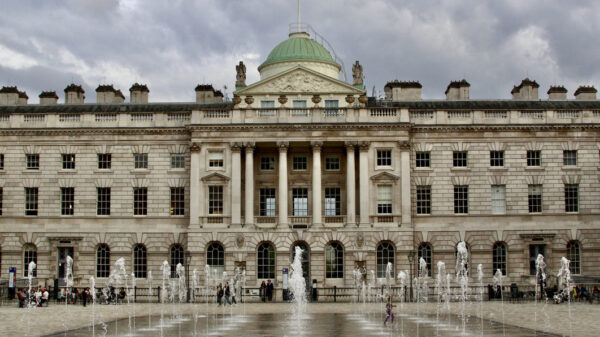
As an outgoing third-year History student, I felt I was in an adequate position to write this. This article is a response to both Ruva Takawira’s open letter to the History department and Ryan Chan’s comment piece arguing against that letter.
Takawira, a second-year history student, made a more than legitimate criticism of the department. It is true that History at King’s is boastful of its “global reachâ€, while Group III modules for 2019-20 are remarkably narrow in their temporal and geographical scope. Several medievalists and internationalists within the department happen to be away at the same time meaning its restricted.
The reasons for this are not ideological, but organisational. King’s academics represent increasingly diverse areas of study and research and the fault does not lie with them. However, the dissertation module list clearly shows the department’s failure to meet its promises to offer “the histories of, and scholarship by, traditionally under-represented groups.â€Â This year, modules on gender and sexuality in the Arab world, jazz in the USA and revolutionary Russia offer that – but sadly they are not available for 2019/20.
However, I disagree with the overly ideological implications of Takawira’s later accusation. She writes: “This institution is attempting to enforce the history of Western Europe & Britain and/or her colonies on us.â€
Also, the letter claims: “There is no economic history. There is no history of science, technology, or medicine.†But after briefly reading the summaries of these modules, this is not entirely accurate. ‘Defining Race and Culture’ is heavily a module about science. Several of the others have heavy economic themes too, particularly the many engaging in political culture and authority.
To decolonise or not to decolonise?
Granted, the modules on offer overwhelmingly represent European histories. However, Takawira’s point here comes in reference to recent calls to “de-colonise university curricula†and reveals a questionable interpretation of this term. I would argue that the department doesn’t need to decolonise, just diversify.
The decolonisation of academia is about stripping back a culture of Whiggish, European history that congratulates its own achievements and maintains the structures of power that place the coloniser’s perspective and quality ahead of the colonised.
In reference to 2019-20 dissertation options, the term decolonise is not wholly appropriate. Just because a dissertation module is about white people, it doesn’t make it inherently colonial in its themes.
For example, ‘The Global Cold War’ is a module that will professes to step away from the very complaints of the ‘decolonise history’ group by placing greater emphasis on the non-superpower elements.
Similarly, ‘Political Culture in the Twentieth Century United States’ promises a focus on ‘social movements such as early feminists, civil rights activists, and the gay rights movement’.
Furthermore, ‘Ireland, Politics, Culture and Nationalism, 1880-1923’ offers an important step in ‘decolonising’ history. In British curricula, Ireland is woefully underrepresented. The brutal centuries of London’s occupation and repression are willfully swept under the academic rug by the British school system. Exploring Irish nationalism while incorporating the role of women’s and labour movements breaks from the high political, England-centric culture of ‘British’ history. A module such as this, which undermines the preference of the colonial perspective, ought to be recognised for its progressiveness.
That said, Takawira makes important points for the department to consider. Third year options are frustratingly narrow; the department should not be surprised that so many students feel disappointed. My aim is not to act in the history department’s defence: only to encourage the critical consideration of simplistic slogans like ‘decolonise history’.
Education is political and making that point is important.
Secondly, Ryan Chan’s recent piece for Roar exposed some attitudes that are considerably more dangerous. Chan writes that Takawira’s letter “politicises… an issue that is apoliticalâ€, arguing that education is without political implications. This might seem like a remarkable thing to say.
On the other hand of this debate is Bertrand Russell, who wrote: “Almost all education has a political motive: it aims at strengthening some group, national or religious or even social, in the competition with other groups. It is this motive, in the main, which determines the subjects taught, the knowledge which is offered, and the knowledge which is withheld.â€
Between these two viewpoints, I am inclined to side with the latter. It takes an unassailable tunnel vision to assert that education is not of a political nature. Having to demonstrate a point so obvious seems condescending. But, for discourse’s sake, I will.
Let’s go for a painfully trite example to illustrate just how misguided Chan’s idea is. If a module on the establishment of the State of Israel completely passed over Palestinian nationalism and exodus, no doubt this would politically impact the students’ understanding of that history. Similarly, if that same module ignored the Holocaust and anti-Semitic reactions in the Arab world, the students’ views might emerge equally one-sided.
Education, and this is especially true of History, is the acquisition of ideological capital. The content with and the manner in which we are educated will completely shape our understanding of the world, its people and issues. We, the next generation, will be those that decide how issues with historical roots progress in our lifetimes. To say that education is not political is to argue that education should not affect how we perceive and act within the world. If this were true, what would be the point of education at all?
Chan goes on to criticise The Clandestine’s focus on their own university and asks: ‘Why do we not accuse Chinese or Japanese universities of being ‘Sino-centric’ or ‘Nippon-centric’? They too colonised large masses of land in Asia, and both countries implement revisionist histories in their curricula. Why Europe and not Asia? If these so-called activists are concerned with true colonial history, enrol in Tokyo University and start protesting!â€
This bizarre ‘what about…’ tactic is a weak attempt to divert attention from an issue by spraying a load of other comparable but ultimately irrelevant issues onto the table. The Clandestine is completely justified in its sole criticism of King’s for the same reason that we protest our own government – the institution is accountable to us, funded by us and has a duty to us. The intricacies of revisionist history’s prevalence in far off universities is of negligible significance compared to a student picking their modules from a paltry range in their university. Good on Chinese and Japanese universities for their open-mindedness and academic courage: but it doesn’t really affect us over here.
Thirdly, Chan celebrates the Eurocentric module list and expects others to do the same. Apparently, the College’s focus on European history is natural as it is “A British university situated in Europe.†Chan proudly states he “came to the West to study the West.â€Â Perhaps European Studies might have been a more fitting degree. A history degree should transcend study of the West, otherwise it really would need decolonisation.
At the same time, he takes issue with the “activists†imposing their expectations of the history course onto other students. This hypocrisy regarding whose opinion matters and whose interests are respected is indicative of the exact arrogance that global historical perspectives can expose.
As Takawira wrote, “students want to learn about a wide range of topics.†European students benefit in particular from a globally-minded syllabus, having suffered two decades of cultural saturation that has prioritised the West over all else.
But an education with a global outlook is beneficial to students from anywhere. This brings us back to the original issue: the dissertation modules are far too narrow in their scope. Of the 17 on offer, only three to four arguably take place outside Europe’s borders. My sympathy goes out to disappointed students. On the other hand, Ryan Chan should take comfort that at least he will be able “to study the West.â€

















